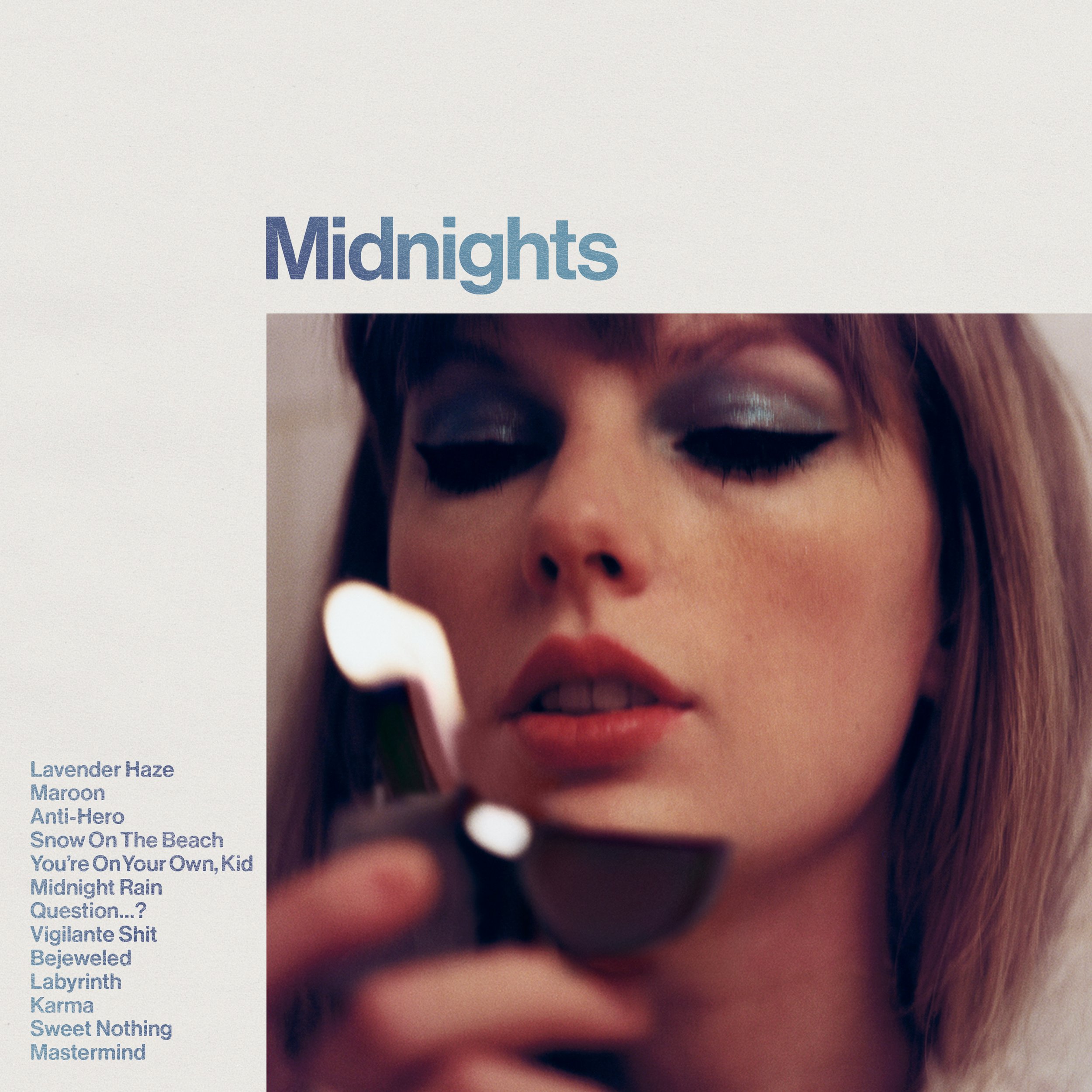SZA: <em>SOS</em>
8.9
GENRE: R&B/Pop
YEAR OF RELEASE: 2022It’s not difficult to explain what’s so cool about SZA. Apart from her nonchalant attitude and looks, her music is boundless, untethered to anything. Her sound is primarily R&B, but there’s much more to the guitar riffs that populate the trap beats layered under her vocals. And, perhaps most importantly, there’s a whole lot to her ever so straight-to-the-point lyricism. After a critically acclaimed debut album and a few—and dare I say, brilliant—droplets and collaborations with other artists, SOS, SZA’s long-awaited sophomore album, arrived at the very end of 2022, stretching both arms inside a year that seemed to be musically done for. And, wow, the record is not only bold for its unusual length of 23 songs but also for SZA’s usual, uniquely discomforting lyricism that, if anything, has evolved into something even more ache-causing.
Back in 2017, when the singer released her debut full-length CTRL, the world had to learn to deal with her bluntness. “I’ve been secretly banging your homeboy,” she sang on the opening track of that album without mincing her words. No amount of warning could’ve prepared the music world for her sweet and sour honesty. But that worked in her favor: we took her side, we rooted for her, we bought into her specificities and analytical vulnerability. If anything, each of us, too, became the insecure person overanalyzing their place in a room of homies watching Narcos. And that is why the world spent the past five years asking for a new album, even when she retracted and revealed that RCA, her record label, was responsible for the delays.
After five long years, SZA is back with even more sincerity on SOS: “Ain’t no spite, I’m just tea,” she half-sings-half-talks over a gospel choir on the opening title track. The opening serves as a reminder that SZA rarely works with metaphors. Her songwriting is literal—maybe too literal—and if she’s cool with that, so should we. But the new record does give space for her to try on some metaphorical liberties: the brilliant “Kill Bill,” which reconnects SZA to her nack for using movie references, tracks the singer plotting to kill her ex and his new girlfriend. This reference is more on the nose than previous ones like 2017’s “Drew Barrymore” and “Doves in the Wind,” but it is equally balanced by its subject matter not being explicitly connected to the song title. Still, you don’t have to think too hard to understand what she did here. “I might kill my ex, not the best idea/His new girlfriend’s next,” she croons over a moody guitar and slouchy drums, making for a violently sticky chorus.
SOS does see SZA charmingly directing her words at some people, but for most of the record, she’s introspective, something that the album cover hints at. In the artwork, the singer is sitting on a diving board while staring at the sea, her face almost unintelligible, centered in a composition that shows the deep blue ocean and its waves. Inspired by Princess Diana, the artwork conjures up the overall mood of the album: a pensive and isolated SZA reflects upon her qualities, her strengths, and, sometimes, her flaws. And there’s a lot of that here. Like when she accepts she can’t complain after messing things up on the R&B-hued “Seek and Destroy,” or when she assumes to be “immortalized in my thoughts” on “Used,” in which she very subtly talks about her difficulty concentrating.
SZA makes these confessions to no one but herself. It all comes in the form of “thoughts said aloud” instead of texts sent to whoever they are about. On “Special,” when she sings, “Hate how you look at her 'cause you never saw me/Like I was an art piece, like I was an ordinary girl,” (in a clever callback to 2017’s track “Normal Girl”), we can picture the singer whispering these words with her head down, looking at the ocean, letting out a sigh. She even addresses that on “Gone Girl,” another movie-inspired track: “Inward I go when there's no one around me,” she sings softly over a calming piano and keyboards, having prayed for “more space and security” a few lines earlier. In fact, there’s an array of tracks on SOS that resemble prayers, like the top 10 hit “Good Days,” released in 2021, where she talks about looking forward to a bright future, repeating positive thoughts to herself like in a mantra.
SOS is weaved by SZA’s stumbles and rises. Every push and fall, every minute spent crying on the floor, every moment gaining balance to stand up—it all becomes witty reflections verbalized by her honeyed voice. But the search for genuine connection is a messy one, and by the looks of it, SZA knows that all too well. She swears love for someone who doesn’t deserve it in “Snooze,” pledges to be okay with an unlabeled situationship on “Notice Me,” enjoys the highs of revenge sex over the acoustic drums and electric guitars of the pop-punk tinged “F2F,” and goes through the come-down of such highs on the acoustic ballad “Nobody Gets Me,” one of the finest moments of the record.
Some tracks catch your ears before others. It’s the case with “Ghost in the Machine,” a lavish collaboration with Phoebe Bridgers, where both her voices eco beautifully when juxtaposed over a deep bass drum, digital harp chords, and glitch electronic effects. It’s also the case with “Conceited,” in which SZA owns her loneliness over upbeat tropical trap beats, and with “Too Far,” where the singer finds herself drowning in very conflicted feelings about a breakup. These new first-glance highlights go head-to-head against the already-known and much-adored cuts “Shirt” and “I Hate U,” all of which carry the theme of toxic love that makes SOS a well-rounded record.
For the most part, SOS tracks the Missouri-native singer putting things into perspective while maintaining herself as the centerpiece, placing her state of mind before that of the others. In that sense, the record feels like a journey. “All of the love I seek living of me/I can’t see, I’m blind,” she sings in the introspective “Blind,” making even her lack of self-esteem sound angelical with her vocalizations after the chorus. She traces back to the matter a few times: in “Open Arms,” where she compromises a portion of her pride in favor of keeping love (“But please put a leash on me anyway/Who needs self-esteem anyway?”), and in “Forgiveless,” the closing track that samples Björk’s “Hidden Place” and vocals of Ol' Dirty Bastardad extracted from a documentary. She finishes off SOS by saying that she’s “not in the dark anymore.” It’s the perfect assertion of boosted self-confidence after so many lows.
Her growth is visible: there seems to be a newly-acquired maturity showing through the lyrics of all 23 tracks. Even when she assumes feeling low on “Far” or raps about giving zero fucks on “Smoking On My Ex Pack,” there’s a new energy around the singer that seemed impossible to exist five years ago when she released CTRL. But one thing has remained unchanged from her debut album until now: the singer’s ability to push the boundaries of a much-adored genre, both seamlessly and effortlessly, something that only Frank Ocean and SZA herself seem to be capable of doing. SOS stretches R&B past its limits, with SZA flirting with pop-punk, country, and even grunge. This inclination not to stay in a single musical lane, along with the lyrical content of SOS, demonstrates something: she cares not about perfection, and main songwriting/production collaborators Rob Bisel and Carter Lang ride along with it. Thank God they do—even with its bits of imperfection, SOS is glorious.
8.9
Listen to SOS:


With its unpredictable song structures and posh atmosphere, The Car represents the most successful venture in the band’s constant act of self-discovery.